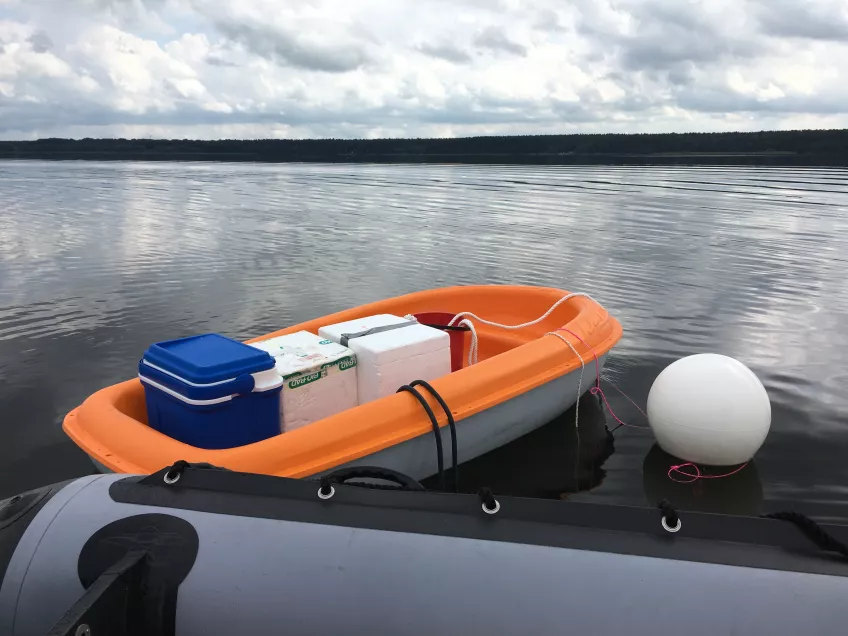Understanding the role of freshwater respiration in the carbon cycle
– a reconsideration of the pelagic respiratory quotient
Respiration in freshwater and marine systems represents some of the largest carbon fluxes on Earth. Pelagic respiration is estimated by sensitive oxygen (O2) consumption methods, and converted to carbon dioxide (CO2) production by a fixed 1:1 ‘respiratory quotient’ (RQ). However, recent evidence shows that community RQs vary several-fold. Such variations are poorly understood and largely neglected, implying potential major errors in assessments of the role of aquatic systems in the carbon cycle.
This project brings together leading biogeochemists to bridge this knowledge gap, combining laboratory experiments with 3 years of freshwater field measurements to test the following novel hypotheses: 1) RQs are below 1 in eutrophic ecosystems due to reduced algal-derived substrates that mainly fuel the respiration; 2) Conversely, in oligotrophic systems the RQ is above 1 because of large shares respired substrates being photo-chemically produced organic acids with high oxidation state; 3) Moreover, communities that assimilate nitrogen (N) in the oxidized form nitrate have higher RQ compared to systems where organic N or ammonia is used. We propose pioneering work on freshwater RQs, performed in broadly distributes lakes in Sweden, that will improve and possibly alter the perceived role of freshwaters in the global carbon cycle. The project will provide a break-through in the mechanistic understanding of the parameter RQ which is fundamental for aquatic respiration assessment.
Investigators:
Martin Berggren, Lund University
Lena Ström, Lund University
Per Bengtson, Lund University
Contact information
Department of Physical Geography and Ecosystem Science
E-mail: martin [dot] berggren [at] nateko [dot] lu [dot] se
Phone:+46 46 222 17 34


